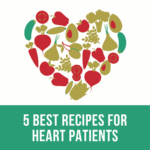The Psychology of Food Cravings delves into the intricate interplay between our minds and the cravings that drive our dietary choices. Rooted in a combination of biological and psychological factors, these cravings are often triggered by neurotransmitters such as dopamine, which contribute to the pleasurable sensations associated with certain foods.
Emotional states also play a significant role, as stress, sadness, or boredom can prompt individuals to seek solace in specific culinary delights. Understanding these triggers is key to managing and reshaping our relationship with food.
Strategies for managing food cravings include the practice of mindful eating, fostering an awareness of the present moment during meals. Additionally, opting for nutrient-rich alternatives over processed snacks and maintaining proper hydration can diminish the intensity of cravings.
Understanding the Mind-Body Connection
The Neurological Dance of Cravings
The brain, our control center, orchestrates a symphony of neurotransmitters and hormones that dictate our cravings. Dopamine, the pleasure neurotransmitter, often takes the spotlight in this complex dance. When we indulge in certain foods, especially those high in sugar and fat, dopamine levels surge, creating a sense of pleasure and satisfaction.
Emotional Triggers: Unraveling the Mystery
Beyond the biochemical aspects, emotions play a pivotal role in food cravings. Stress, sadness, or boredom can act as catalysts, compelling us to seek comfort in specific foods. Recognizing these emotional triggers is the first step towards regaining control.
Also check: The Benefits of Healthy Eating as You Age
Strategies for Managing Food Cravings
Mindful Eating: A Holistic Approach
Mindful eating is a powerful tool that encourages awareness of the present moment while consuming food. By savoring each bite and paying attention to hunger cues, individuals can build a healthier relationship with food. Here we advocate for integrating mindfulness into your daily eating rituals.
Nutrient-Rich Alternatives: Nourishing the Body and Mind
Rather than succumbing to the allure of processed snacks, opt for nutrient-dense alternatives. Include fruits, vegetables, and whole grains in your diet to provide essential vitamins and minerals, promoting overall well-being and reducing the intensity of cravings.
Hydration: A Deceptively Simple Solution
Dehydration can often masquerade as hunger, leading to unnecessary snacking. Ensure you stay adequately hydrated throughout the day to curb false hunger signals. Drinking water before meals can also contribute to a feeling of fullness, reducing the urge to overindulge.
Also check: How to Develop Healthy Eating Habits
The Role of Habits in Craving Management
Building Healthy Habits: A Long-Term Solution
Habits, both good and bad, shape our daily lives. At What are you Eating, we emphasize the importance of cultivating healthy habits to counteract food cravings. Establishing a routine that includes regular meals, sufficient sleep, and consistent physical activity contributes to overall well-being and diminishes the power of cravings.
Recognizing Triggers: A Crucial Aspect of Habit Formation
Understanding the cues that trigger cravings is instrumental in breaking the cycle of unhealthy habits. Whether it’s a stressful day at work or a lack of sleep, identifying these triggers empowers individuals to make informed choices and gradually reshape their habits.
Seeking Professional Guidance
The Role of Nutritionists and Psychologists
For those facing persistent challenges in managing food cravings, seeking professional guidance can be transformative. Nutritionists can tailor a diet plan to address specific nutritional deficiencies, while psychologists delve into the emotional aspects, helping individuals build resilience against emotional triggers.






Leave a Reply